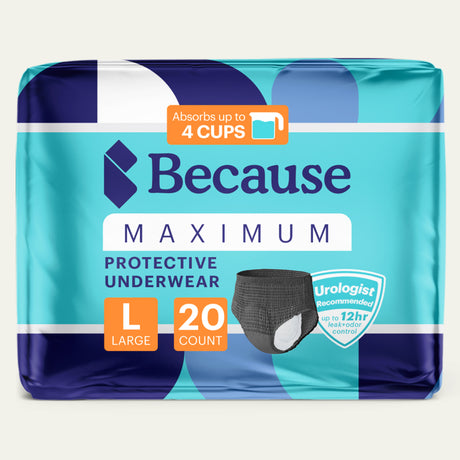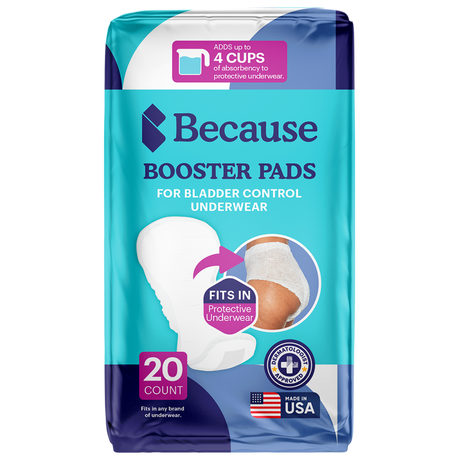Maintaining good urinary health is an essential part of overall wellness, yet it’s often overlooked until issues arise. Creating a personalized urinary health regimen can help prevent common problems like infections, discomfort, and bladder control issues, allowing you to stay comfortable and confident. This guide will introduce you to five key tips for building a urinary health regimen that fits your unique needs and lifestyle. By incorporating these simple yet effective practices, you’ll be well on your way to supporting long-term urinary health and enjoying the peace of mind that comes with it.
Key Takeaways
- Stay Hydrated Wisely: Drinking enough water is essential for urinary health, but be mindful of limiting caffeine, alcohol, and other bladder irritants that can cause discomfort.
- Eat for Urinary Health: Incorporating foods rich in antioxidants, like berries, and avoiding common bladder irritants, such as spicy foods and citrus, can support overall urinary health and wellness.
- Strengthen Your Pelvic Floor: Regular Kegel exercises help improve bladder control by strengthening the pelvic muscles, making a noticeable difference in urinary health and comfort over time.
- Establish Healthy Bathroom Habits: Practicing a regular bathroom schedule and good hygiene habits are simple but effective ways to maintain urinary health and prevent infections.
- Track and Adjust: Keeping a health journal can help you identify triggers and patterns. Adjust your urinary health regimen as needed, and consult a healthcare provider if symptoms persist or worsen.

Tip #1: Prioritize Proper Hydration
Staying properly hydrated is one of the most important steps in supporting urinary health. Water helps flush out toxins and bacteria from the urinary tract, reducing the risk of infections and keeping everything functioning smoothly. Aim to drink about eight glasses of water a day, though individual needs may vary based on age, weight, and activity level.
Limit Irritating Beverages
It's also essential to limit beverages that may irritate the bladder, such as caffeine, alcohol, and sugary drinks. These can contribute to dehydration and trigger bladder discomfort or urgency. By focusing on hydration with clean, pure water and avoiding irritants, you’re taking a crucial step toward maintaining optimal urinary health.

Tip #2: Focus on a Balanced, Bladder-Friendly Diet
A well-rounded diet that includes bladder-friendly foods can make a significant difference in urinary health by reducing irritation, supporting immune function, and providing the nutrients needed to maintain a resilient urinary system. Just as certain foods can promote a healthy heart or digestive system, specific nutrients play an essential role in fortifying the urinary tract. For example, high-fiber foods like whole grains and vegetables help regulate bowel movements, reducing pressure on the bladder. Meanwhile, foods rich in vitamin C and antioxidants, such as berries and leafy greens, boost immune health, potentially lowering the risk of urinary tract infections by helping the body fend off harmful bacteria.
Include Foods that Support Urinary Health
Certain foods, like cranberries, leafy greens, and whole grains, are rich in antioxidants and anti-inflammatory properties, supporting the urinary tract’s resilience against infections and irritation. Additionally, pumpkin seed extract and soy germ are known to support bladder and urinary health by strengthening pelvic floor muscles, reducing urinary frequency, and promoting better bladder control, making them beneficial for those experiencing bladder sensitivity or overactivity. Including these nutrient-dense foods can help reduce inflammation and provide the body with essential vitamins that promote urinary health and bladder wellness.
Avoid Foods that Can Trigger Irritation
On the other hand, some foods are known bladder irritants and should be consumed in moderation or avoided altogether if sensitivity occurs. These include spicy foods, acidic fruits like citrus, artificial sweeteners, and highly processed items. By balancing your diet to include more urinary-supportive foods and limiting known irritants, you can create a dietary foundation that promotes long-term urinary health and comfort.
Incorporate Probiotics into your Diet
Including probiotics in your diet can support urinary health by promoting a balanced gut microbiome, which in turn may help prevent harmful bacteria from thriving in the urinary tract. Probiotics, found in foods like yogurt, kefir, and fermented vegetables, introduce beneficial bacteria that can strengthen the body's natural defenses against infections, including urinary tract infections.
Probiotics also play an essential role in maintaining a healthy vaginal flora, which is closely linked to urinary health. A balanced vaginal microbiome, rich in beneficial bacteria like Lactobacillus, helps prevent the overgrowth of harmful bacteria that can travel to the urinary tract and lead to infections. By supporting vaginal health with probiotics, you create a protective barrier that not only reduces the risk of vaginal infections but also helps guard the urinary tract.
Tip #3: Incorporate Bladder-Strengthening Exercises
Bladder-strengthening exercises, particularly those that target the pelvic floor muscles, can improve bladder control and reduce issues like urgency and leakage. A strong pelvic floor supports the bladder and urethra, helping to manage pressure and maintain proper function which is essential to urinary health.
Practice Regular Kegels
Kegel exercises are especially effective and involve contracting and holding the pelvic muscles for a few seconds, then releasing. Practicing Kegels regularly can lead to noticeable improvements in bladder control and overall urinary health over time.
Other Physical Activities to Support Urinary Health
In addition to Kegels, general physical activity like walking, yoga, and core exercises can support urinary health by helping you maintain a healthy weight. Extra weight, especially around the abdomen, can place pressure on the bladder, increasing the likelihood of leaks and urgency. By incorporating these exercises into your routine, you can strengthen the muscles that support your bladder, enhance control, and add an extra layer of confidence to your daily life.
Tip #4: Build Healthy Bathroom Habits
Establishing healthy bathroom habits is a fundamental part of maintaining urinary health and preventing infections, as it promotes regular bladder emptying and helps protect against bacterial buildup that can lead to urinary tract infections (UTIs). Healthy bathroom practices support both bladder and kidney function, helping maintain balance within the entire urinary system. Regular bathroom breaks prevent the bladder from becoming overly full, which, over time, can weaken the bladder muscles and contribute to issues like incontinence or an overactive bladder.
Furthermore, proper bathroom habits are about more than frequency; they also involve mindfulness around personal hygiene and posture. Simple practices like fully relaxing when urinating and avoiding rushing the process allow the bladder to empty more completely.
Maintain a Consistent Bathroom Schedule
One key habit to build to improve your overall urinary health is going to the bathroom regularly, rather than waiting until the urge becomes intense, as holding urine for too long can strain the bladder and increase the risk of infections. Aim to urinate every three to four hours during the day, allowing your bladder to empty fully without putting unnecessary pressure on it.
Practice Proper Hygiene
Practicing proper hygiene is equally important for your urinary health. Always wipe front to back after using the toilet to prevent bacteria from spreading to the urinary tract, and consider using gentle, unscented soaps to avoid irritation. Additionally, make it a habit to urinate after sexual activity, as this can help flush out any bacteria that may have entered the urethra. By building these simple yet effective habits, you create a healthier environment for your urinary system, reducing the likelihood of discomfort and infections over time.

Tip #5: Track Your Progress and Adjust as Needed
Monitoring your urinary health over time can help you understand what works best for your body and allows you to make adjustments to improve your regimen. Keeping a health journal to track factors like hydration levels, dietary choices, bathroom frequency, and any symptoms can reveal patterns and potential triggers that impact your urinary health. By identifying these patterns, you’ll be better equipped to make informed choices, such as adjusting water intake on more active days or avoiding certain foods that may cause irritation.
Know When to Seek Medical Advice
Tracking progress also provides valuable insight into when it may be time to consult a healthcare professional. If symptoms like pain, frequent urgency, or leakage persist despite your best efforts, reaching out to a provider can help you uncover underlying issues and fine-tune your urinary health regimen. Making small adjustments based on your observations empowers you to take control of your urinary health, ensuring that your regimen evolves with your changing needs and lifestyle.
Why Urinary Health Matters
Urinary health is a vital component of overall wellness, influencing everything from comfort and daily function to confidence and quality of life. A healthy urinary system efficiently removes waste and toxins from the body, supports electrolyte balance, and plays a key role in hydration, all of which contribute to our physical health. When urinary health is compromised, issues like frequent infections, incontinence, or bladder irritation can lead to discomfort, disruptions in daily routines, and even emotional stress. By taking proactive steps to care for the urinary system—through hydration, diet, exercise, and mindful habits—individuals can reduce the risk of common problems and support long-term health, promoting comfort, control, and peace of mind.
Frequently Asked Questions
How can I tell if I’m drinking enough water?
One of the simplest ways to tell if you’re drinking enough water is by observing the color of your urine. Ideally, urine should be a light, pale yellow, which generally indicates adequate hydration. Darker yellow or amber urine may signal dehydration, while very clear urine could mean you’re overhydrating. Another indicator is thirst—if you’re frequently feeling thirsty, it may be a sign that you need to increase your fluid intake.
What foods should I avoid for bladder health?
For optimal bladder and urinary health, it’s best to avoid foods and drinks that can irritate the bladder, such as:
- Caffeine (coffee, tea, sodas)
- Alcohol
- Spicy foods
- Citrus fruits and juices
- Artificial sweeteners
- Carbonated drinks
- Acidic foods (like tomatoes)
- Chocolate
How often should I perform Kegel exercises?
For best results, aim to perform Kegel exercises three times a day, with each session including 10–15 repetitions. Each contraction should be held for about 3-5 seconds, followed by a similar rest period. Consistency is key, and many people see improvements in bladder control within a few weeks of regular practice.
What are signs I should see a doctor about urinary health?
You should see a doctor if you experience persistent pain or burning during urination, frequent urges to urinate with little output, blood in the urine, or recurring urinary tract infections. Additional warning signs include urinary leakage, difficulty emptying the bladder, or sudden changes in urinary habits. These symptoms could indicate underlying issues that benefit from medical evaluation and treatment.
Can lifestyle changes alone prevent urinary tract infections?
Lifestyle changes, such as staying hydrated, practicing good hygiene, and avoiding bladder irritants, can significantly reduce the risk of urinary tract infections but may not prevent them entirely, especially in those prone to infections. Regular bathroom habits and diet adjustments can help maintain urinary health, but some individuals may still require medical intervention. For recurrent UTIs, a doctor may recommend additional preventive measures beyond lifestyle changes.
What doctor should I see to discuss my urinary health?
To discuss urinary health, it’s best to see a urologist, a specialist in the urinary system who can address issues related to the bladder, kidneys, and urethra. Women may also benefit from seeing a urogynecologist, a specialist who focuses on urinary and pelvic floor health. For initial concerns, you can also consult a primary care physician, who can evaluate symptoms and refer you to a specialist if needed.
































